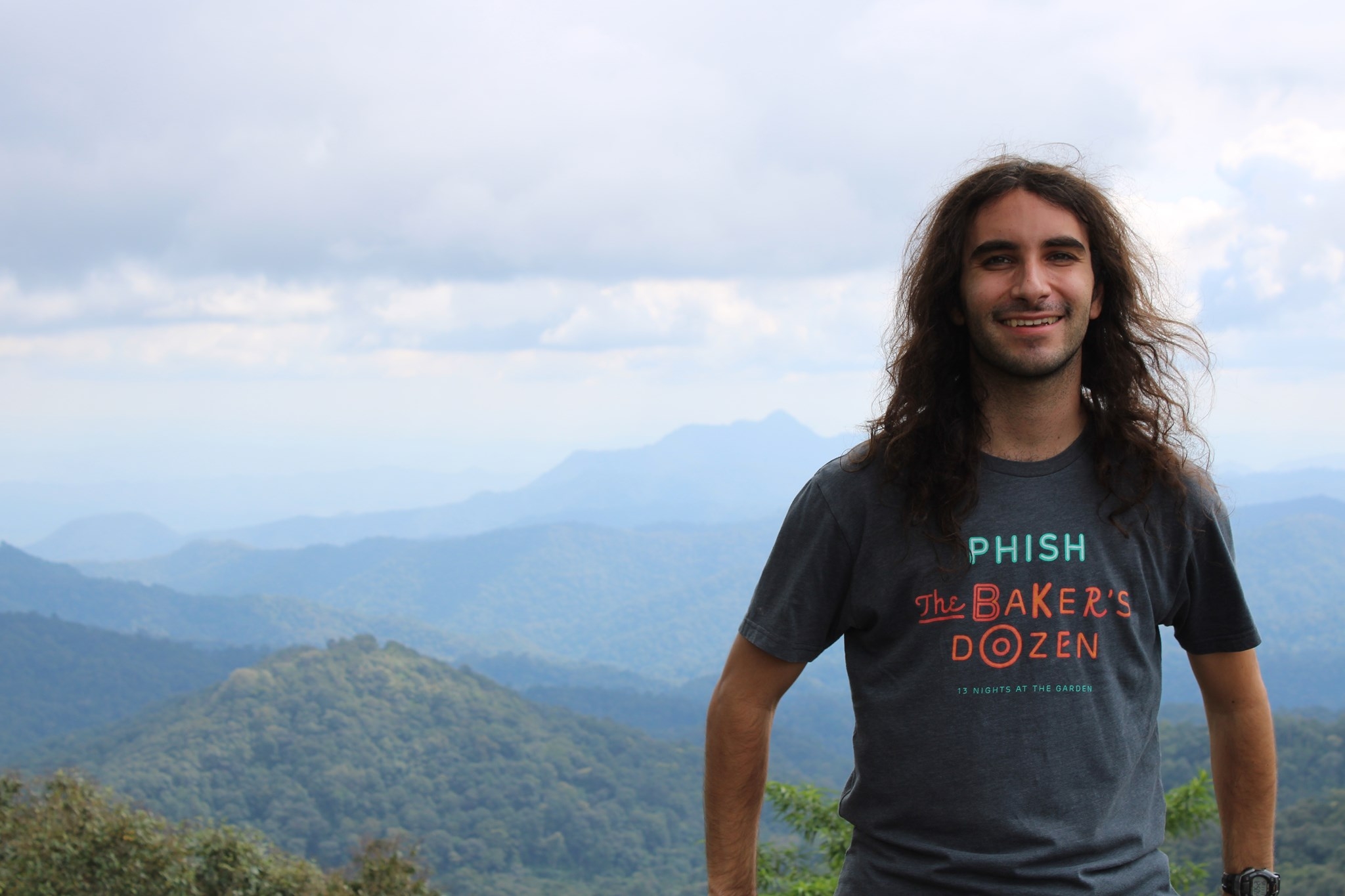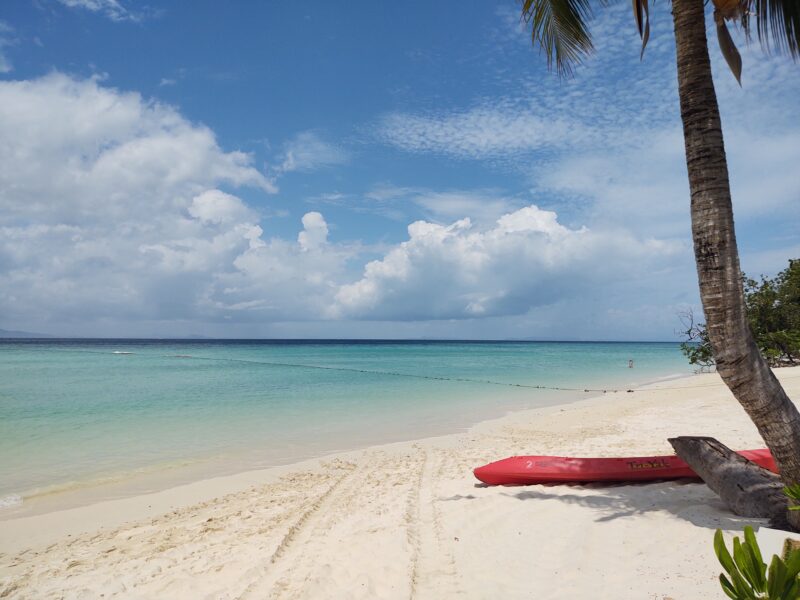November marks one year since my first freelance contracts. It’s usually one of my least favorite months of the year for a lot of reasons I won’t get into, but this year, it’s one of the best. This past year has completely changed my life, and most of it I owe to my new career. Becoming a freelance copywriter slowly, but surely, paved my way to financial, creative, and location freedom.
I’ve been quite successful, and I frequently get asked for advice and tips from people interested in doing what I do. In this post, I’ll look back over the past year with specific numbers and examples, compiling some of my biggest insights. Even if you’re not planning on a freelance journey for yourself, you may find my path thought-provoking.
The year can be broken somewhat evenly into chunks, approximately three months each. From one season to the next, my skills grew, my work became more interesting, and my earnings reflected it.
Devouring The Shit Sandwich (November 2020-January 2021)

I jumped into my career change, as many people do, by saving up a little bit of money and then quitting my job. I didn’t have anything lined up, and my extremely well thought out plan was to “figure it out” in any way that I could.
All I knew was that I needed a change. Even though it was interesting, well-paying, and stable, my previous career as a nuclear engineer wasn’t working for me. I had some vague idea of what was wrong: I didn’t have enough interaction with people, projects wouldn’t turn over fast enough for my fast-paced brain, and, most importantly, I had forgotten why I was there in the first place. But I would be lying if I said I knew what I wanted instead.
How To Quit Your Job
You’ll probably have the most success and save the most time getting started if you dive straight in; i.e., if you quit your job and commit. I’ve always believed that if you have a Plan B, you won’t take Plan A seriously enough. Obviously this entails quite a bit of risk and a period of financial freefall, so it’s definitely not for everyone, but personally, I work best under this level of pressure. For me, it was helpful to think of this period of financial freefall as a “runway” instead.
How much money do you need for your runway? Enough so that you can “take off” before you run out of tarmac, of course! It’s hard to tell how much that is and everyone’s needs are different. I can show you the spreadsheets with dozens of plausible forecasts of “if I spend this much during this month and that much during that month, then I’ll need this much money and I’ll have this much wiggle room,” where I attempted to estimate how much money I would need.

It’s all bullshit. You have no clue how it’s going to go until you try. That’s one reason why diving straight in is advisable, because you’re going to be forced to adapt. It’s better to get used to it, rather than fear it. I’ll offer some great advice I received: If you’re going to focus on one thing when you’re starting out, focus on getting consistent work and cash flow as soon as possible.
Full disclosure about my own runway: I had saved up about $8,000, expecting to spend around $2,000 per month. With some new income streams hopefully growing in my first few months, I figured this would give me around six months of runway.
It turned out to be way more than I needed. I pinched pennies and my monthly expenditures ended up being considerably lower. By my third month, I was making around the amount I was spending, and my fourth month was comfortably in the black.
Ghostwriters Anonymous
Can someone please create a comic of a support group meeting where ghosts are talking about how they love to write, but aren’t getting paid enough? And then send it to me, please!
Don’t expect to start making big money instantly especially if, like I did, you have no experience or portfolio when you get started. You’ll need to start by taking pretty much any job you can find.
Experience is the most valuable skill, and this is both a good thing and a bad thing. It’s good because it means no matter where you are, whether you have half a dozen degrees or if you’ve never written a word of copy in your life, you can and will learn more as soon as you start working. It’s bad because it also means that you’ll likely be starting from the bottom regardless of your background.
My first job was a 1,000-word article that’s probably buried somewhere deep on the internet improving someone’s search engine results by a fraction of a hair. I doubt anybody ever read it. It was a list of 10 tips about how to jam on guitar, and I got paid $5 for it.
But experience really is the best teacher and most valuable skill. Besides the peanuts that I was paid, this article gave me experience:
- Writing an article (and pulling my hair out to make it absolutely perfect).
- Writing a killer proposal and bidding on a project (same as above).
- A 5-star review (and a lot of relief).
Each of these three things is infinitely more valuable than $5.
That’s how the early months went. I barely got paid anything — I literally made around $7/hr — but I developed my skills, and with skill came confidence.
In late November, I got hired by what I’d call an “article farm” company, which became my first steady-work job. The more time you spend working and getting paid, and the less time you spend finding jobs, the better.
The article farm gets contracted to write blog articles for websites so that they can rank higher on search engines. You ever Google a question and a little box pops up at the top with the answer to your question? And then if you click the box, there’s a whole article? I was ghostwriting those pages. To name just a few, I wrote articles on:
- Top 25 things to do in Yuma
- Which is healthier, pizza or Chinese food?
- How to use a heat sink while soldering
- How much will Tesla’s solar roof cost in South Africa?
- What is digital signage?
- What is the best age to learn a second language?
- How to tell if your plants are getting enough micronutrients
And way, way too many more. At least I’ve always been the kind of guy that loves googling these sorts of questions.
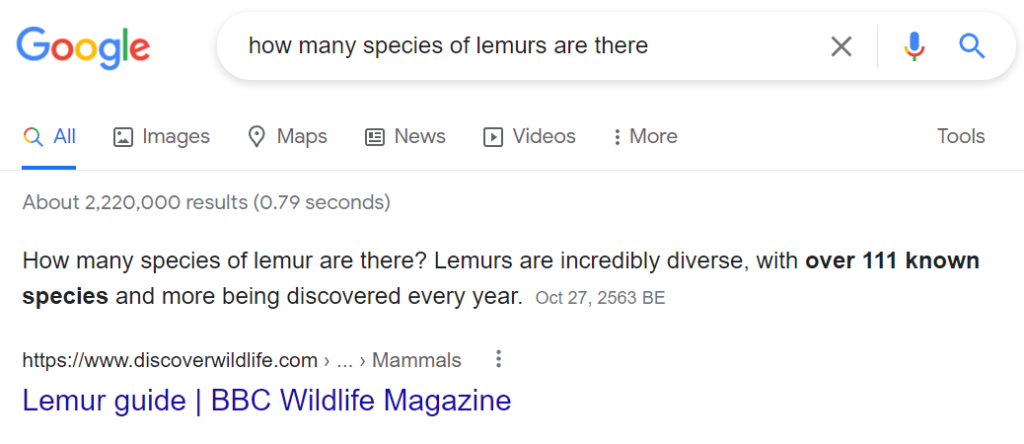
These articles would include both doing research and then writing up what you find, so they can take a while. With practice, I became very efficient with finding, taking in, and spitting out information. My first 3,500-word article was a full day’s work, around 8 hours. By the time I left the job in January, an article of this length would take me about 3.5 hours.
It paid horribly, but writing that much about such varied subject matter made me feel extremely versatile. I was, and am, prepared to take on literally any topic.
Freelancing Is Kind Of Like Skydiving (January-April 2021)
I went skydiving shortly after I turned 18 with some family friends who are experienced skydivers. They told me something that’s stuck with me: a new skydiver’s heart rate is highest when they jump out of the plane, but an experienced skydiver’s heart rate is actually quite low when they jump. Instead, it’s highest when they pull the cord — either your chute is going to catch you, or you’re screwed.
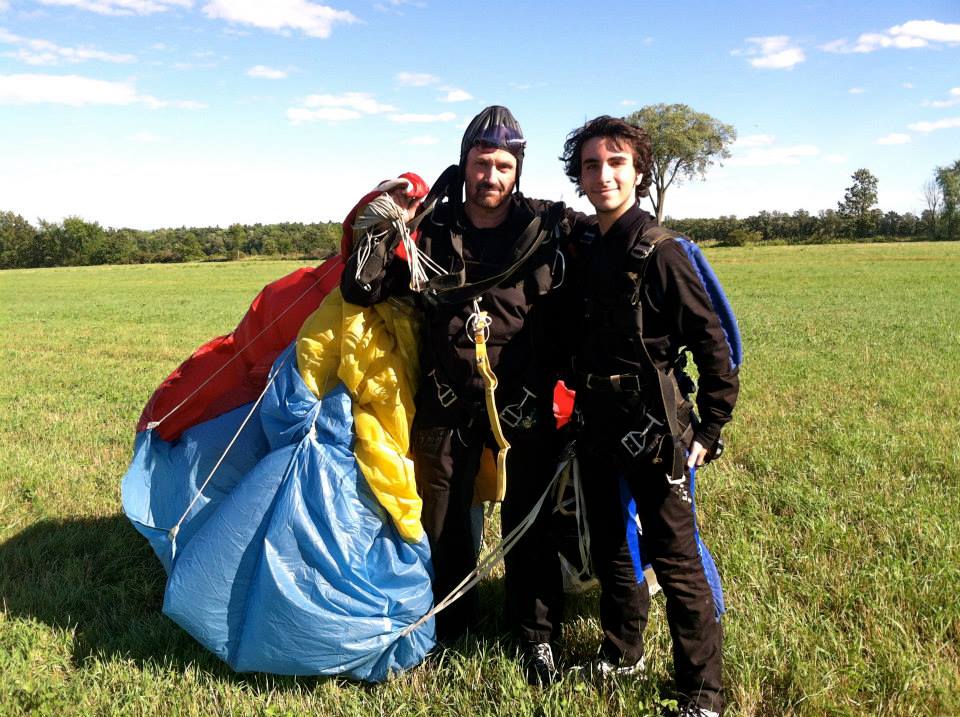
I was still in the red at the beginning of January, spending more than I made. Even if I wrote dozens of articles, it would only pay me a few hundred dollars, so I was still looking for jobs on a regular basis. This is the best way to grow your business, especially at the start.
With my newfound confidence, I started applying to better-paying, more significant positions, like articles that people would actually read rather than just get thrown into the ether. Not only was I more confident in my writing, but I was more confident in myself and my ability to rise to any challenge.
My Parachute
Pros: I have one. Cons: It’s homemade.
Within the span of a month, I landed three different jobs that all had regular work, paid me $30 hourly, and didn’t suck.
I started working with Viziscience, an online AP chemistry companion course to help high school students. With my degree and background in chemistry, combined with my people-focused nature, it was a good fit. Not to mention it was a tiny company, just me and the founder, which meant I had a lot of autonomy.
I also started working as a copywriter with Binaural Records, an online record store. Here, too, it was a relatively small team, and I was working directly with the owner, a friendly, hardworking guy with a good sense of humor and a passion for grunge music and vinyl records. The record store was his passion project, and he wanted to make the copy as fun and engaging as possible. I wrote short biographies about artists, occasional book descriptions and reviews, and eventually, longform articles.
A musician and passionate music-lover myself, I greatly enjoyed this work. Not only was the subject matter interesting, but it was genuinely fun to write, and it introduced me to a lot of great music. I wrote biographies for artists I’d never heard of before, so naturally, I listened to them. Even though I’d heard them a bit, writing my Top 25 Pearl Jam Songs article turned them into one of my absolute favorite bands and took me on a deep dive into grunge music, which has since become one of my favorite genres.

Welcome To Your New Life
The third hourly contract that I lined up was with Side, Inc., a real estate digital brokerage. I have a pretty sharp eye for detail and have a lot of experience critiquing my peers’ work over the years, so I applied to be an editor.
To be honest, I didn’t expect to get the job. I did a test project, editing a few agent bios to see if I would be a good fit. In my head, I would be compared with extremely talented editors with years of experience, against whom I wouldn’t have a chance.
To my surprise, they told me they’d like to hire me for steady, ongoing work.
It was a huge confidence boost and breakthrough. This was the moment that I knew my freelancing career was going to work out. Indeed, it was the moment that I knew I had become a freelancer.
Picking up contracts that paid significantly more than, well, nothing, I started to be able to support myself financially. Not only had writing became my livelihood, but it actively enriched it, too. The stuff I was writing became far more interesting, and I was writing at a level that I had a lot of respect for. Not only that, but I had been through the gauntlet and paid my dues. I was no longer struggling to survive.
My portfolio grew, and my earnings on the freelancing platform — which are displayed publicly — grew to the thousands, then eventually over $10,000. I earned “Top Rated” status in April, meaning I was in the top 10% of freelancers on the platform.
Benevolent Copywriting Wizard (April-July 2021)

I had good, steady work, and I was confident that I could always find work if I ever wanted more. During the next few months, I did exactly that: basically, I tried to make as much as possible while doing work that interested me.
I wasn’t going to settle for shitty jobs about subjects that I didn’t care about, nor would I pick up jobs paying anything less than I wanted to make. This meant I had fewer jobs to choose from and harder competition, but I managed to land some good ones. Still, they were mostly one-off projects.
Now that I could afford to live in the U.S. I had a remarkable and incredibly important revelation: if you can afford to live in America, then you can afford to live almost anywhere. I had built the framework for location independence, one of the ultimate freedoms, without even realizing it.
When The World Is Your Oyster (But It’s Covid And You’re Allergic To Shellfish)
I started toying with ideas of where I could go. For years, I’ve wanted to travel to India. I’m serious about my meditation practice, and spirituality is an important part of my life. Seeing as I’m a Buddhist, I feel like I will have a deep connection to the country when I finally get there. Plus, I’m obsessed with culture and adventure, and India is a fascinating combination of the two.
However, in 2021, it was not meant to be. India had some of the strictest pandemic restrictions; you would not be able to enter unless you were a citizen, diplomat, or married to a citizen. Or something like that; I don’t remember exactly.
I talked to Dan Johnston, a Canadian friend, mentor, and coach of mine who has been location independent and living in Europe for the past decade. He pointed out to me that I didn’t have to start with my dream destination; indeed, it’s probably best if I didn’t. He advised me to go somewhere else first. That way I could get used to my new lifestyle and living abroad.
Asia has always interested me far more than the rest of the world, and besides one family trip to Japan, I had never explored it. I knew it would be incredibly different, but wasn’t sure how it would feel to live there.
Like India, most of Asia had pretty strict pandemic restrictions too, but some countries were not impossible to get into. Long story short, in mid-April, I booked a ticket to Thailand. As with quitting my job, there was certainly not an absence of fear, but I chose to take Dan’s advice that “if you’re looking, you’re booking” and “the reason most people fail is that they never try.”
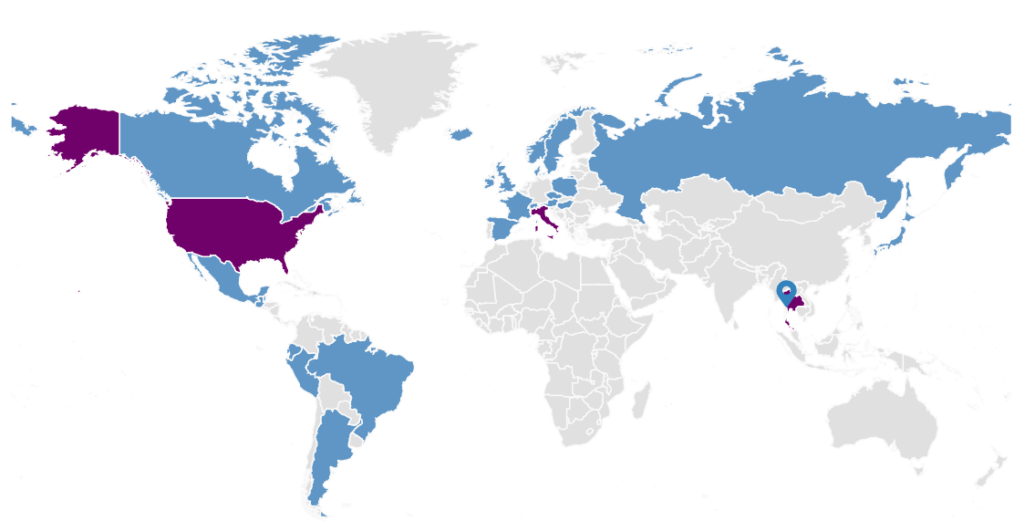
Back To Being Lazy (July-September 2021)
Sometime around the beginning of July, I was coming home from another day where I’d worked too many hours, drank way too much caffeine, and didn’t have any energy for anything other than falling into my bed and going to sleep. All so I could do it again the next day. Not exactly “inspiring,” I know.
I was making money, yes. But I was also aware that I was spending a lot more, too. I like to work from cafes, which means I’m often out and about for a while spending money on food and coffee.
One of my biggest insights from freelancing has been that if you’re not careful, then the more you make, the more you’ll spend. This is probably true of any job, but it’s especially true of freelancing because you have a lot more control over how much you earn based on how much you choose to work.
When I was starting out, I kept my spending as low as possible. Once I started gaining some breathing room, however, I started spending more. And I had some big expenditures along the way: car insurance, a visit to the dentist (THIS MAKES ME SO ANGRY, WHY DO I EVEN HAVE DENTAL INSURANCE??), replacing my 5-year old malfunctioning laptop, and eventually new brakes on my car. These diminished my profits significantly.
On this particular day in July, completely exhausted, I came to this realization: Why am I working so much if I’m just going to spend it all? Maybe if I worked less, I would have more financial pressure to spend less. Maybe it would force me to focus, live within more modest means, and be more grateful.
The “Work Less” Plan
Observing my lack of work-life balance, I made a firm decision to fix and rebalance it. I’ve read Atomic Habits, which I highly recommend, and one of the best points for me was to make clear goals.
So, I wrote and implemented what I called The “Work Less” Plan. It was a one-page internal memo document for Andrew Fletcher HQ that outlined what I was doing and why I was doing it, and it spelled out in exact terms what I would need to do in order to regain control over my life.
It was an important moment, and the plan was quite simple. It came down to four rules:
- No new work that pays less than $50/hr
- Diligently log all work hours in excel
- Each week, there is a hard cut-off on the number of hours. When the hours limit is reached, work must end immediately — no exceptions.
- Decrease total number of work hours by 1 hour per week.
Each week, I worked a little less, no matter what. Once I hit my hours limit, work was over. It didn’t matter if it was Tuesday and I didn’t know what I was going to do for the next five days. No work allowed. With its clarity, I knew I could keep this rule.

It’s easy to get sucked into the corporate system and then squeezed for all your worth, but as a freelancer, with several different clients and contracts, you have a lot more control over the work you choose to do. When I started limiting my schedule, I became more efficient.
In July, I was still working for my first hourly clients from January, and still making around $30/hr with each of them. But I had also picked up much higher paying work, with another long-term position at $50/hr and some contracts over $60/hr. It no longer made sense for me to work for $30/hr, and I noticed myself feeling disappointed whenever I’d work on my lower-paying jobs.
Forcing Myself To Have Uncomfortable Conversations
While I loved my work with Viziscience and Binaural Records, I ultimately chose to let them go. The workflow was just a little too disorganized, limiting my autonomy. I had to wait for feedback and assignments pretty often, which limited my control over my schedule. A couple times, I had revisions long after I’d finished work; as a person with ADHD, that is torture.
With Side, I had much more autonomy, but I still couldn’t justify my rate, so I asked for a raise. By then, amazingly, I wasn’t even nervous to have the conversation. One of two things was going to happen: they were going to give me the rate I wanted, or I was going to quit.
They gave me what I wanted, and I still work with them. In fact, with their continuous growth and occasional need for new writers and editors, I’ve given some successful referrals for friends just starting out as freelancers. I wouldn’t have gotten to where I am without a lot of help from a lot of people, and I care very much about paying it forward.

As my Work Less Plan continued, I streamlined my schedule and focused on the other parts of life. I had a girlfriend, I was in two bands, and I recorded my second solo album of entirely original music; acoustic singer-songwriter tracks this time around. I also coauthored a book with Dan on the ENFP personality type which, if you hadn’t guessed yet, is both of our types. I did all this at roughly the same time while continuing to make more than I spent. I had become the non-coincidental first four letters of “freelancer,” and I had achieved a healthy work-life balance.
In September, I was awarded Top Rated Plus status on Upwork, putting me in the top 3% of all freelancers on the platform, with total public earnings over $20k.
Welcome To Here (late September-November 2021)
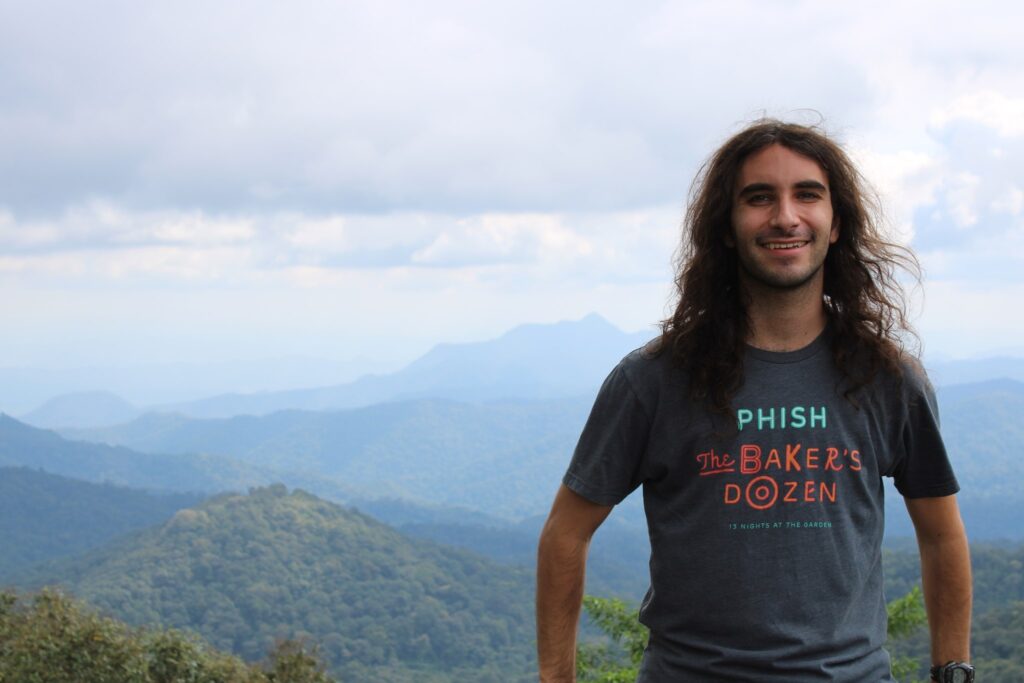
Things changed a lot when I got to Thailand. The change wasn’t with my freelancing work, but with my life in general.
I mentioned that when you make more, you spend more. This is generally true, and it’s especially true in the West. But here in Thailand, my life is a lot less expensive. While this post might make it seem otherwise, I’ve never been the kind of person that thinks a lot about money. I eat where I want to eat and I buy what I want to buy, and my balance only crosses my mind when I do my monthly tally of expenses and revenues.
My new life is pretty cool. Not only do I get to live in this amazing place on the other side of the planet in a culture completely different from my own, but I also can do that and make more than I would if I wasn’t doing it.
Granted, there are a few things that need to be kept in mind for those seeking location independence:
First of all, I’m not here on vacation. I sightsee occasionally, but I’m here to live, not just to travel. Indeed, when I got to Thailand, I was travelling around the islands, and being a tourist there meant that I spent around the same amount as I would have in the U.S. over the same period.
Second, obviously you have to add the airfare of getting to wherever you’re going. This means that it makes sense to live abroad for longer periods of time, minimizing long-distance flights.
Third, you have to be willing to leave your life and community back home. Some people are willing to do this; others aren’t.
Moving forward into 2022, I am incredibly excited. Thailand is the first place I’m living abroad, and I wasn’t sure how it would work out until I got here. Now that I’ve been here for a couple months, and have been completely loving it, I think I want to live abroad for the foreseeable future. Maybe sometime in my 30s I’ll try to lay down roots, but certainly not yet.
For now, I’ll continue my freelancing work, taking it wherever I go. I’ve established a strong routine in Chiang Mai and ironically, I’m working more than I would have back home. Comfortable with longer hours again, I’ve started taking on new projects, getting paid more and growing my business.
What It’s Like To Become A Freelance Copywriter
Quitting my job and becoming a freelance copywriter changed my life a lot. Not only did I begin to work on completely different topics than I used to, but it enabled me to have a huge amount of freedom — control over what I work on, where I work from, and when I work on it.
It’s also given me the freedom to pursue other things, like building this website, releasing my second album (somewhat-ironically called Runaway), and publishing my first book. The album and book should both be available by the end of 2021.
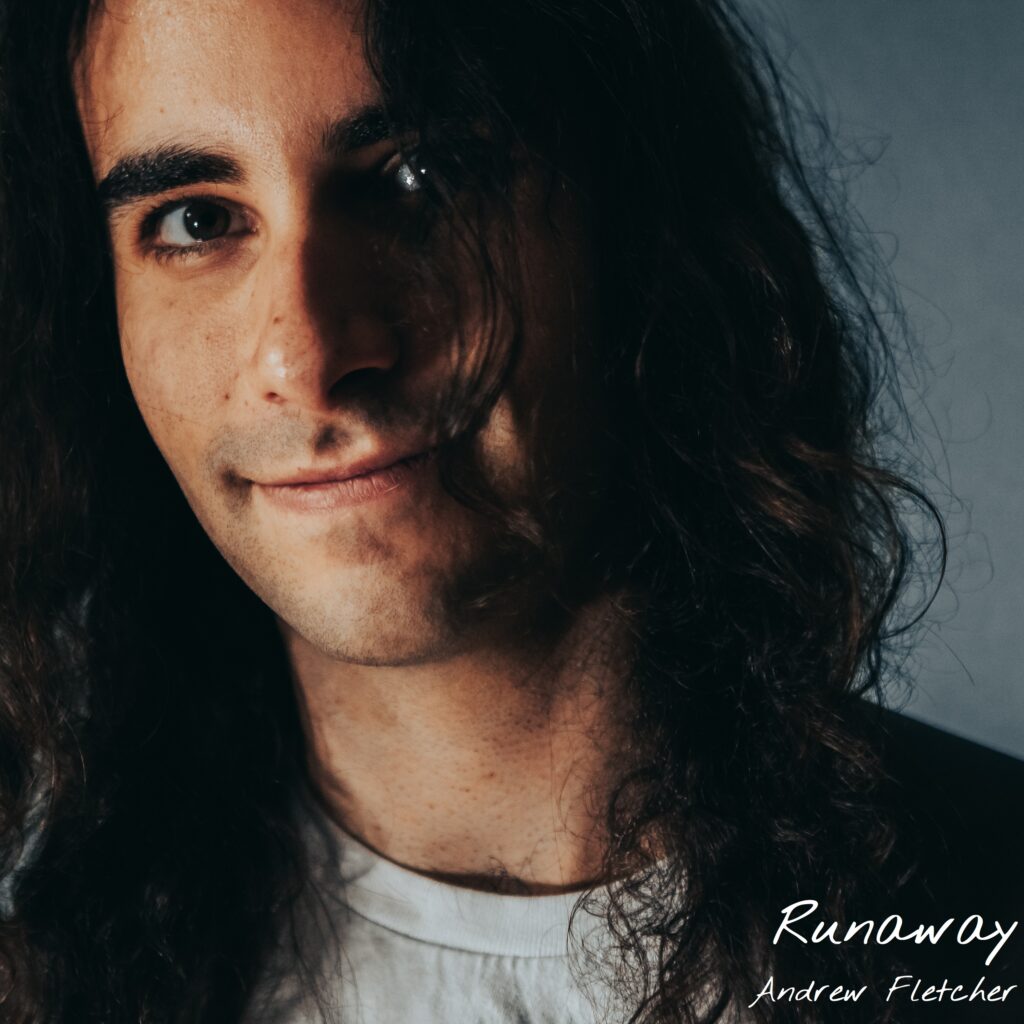
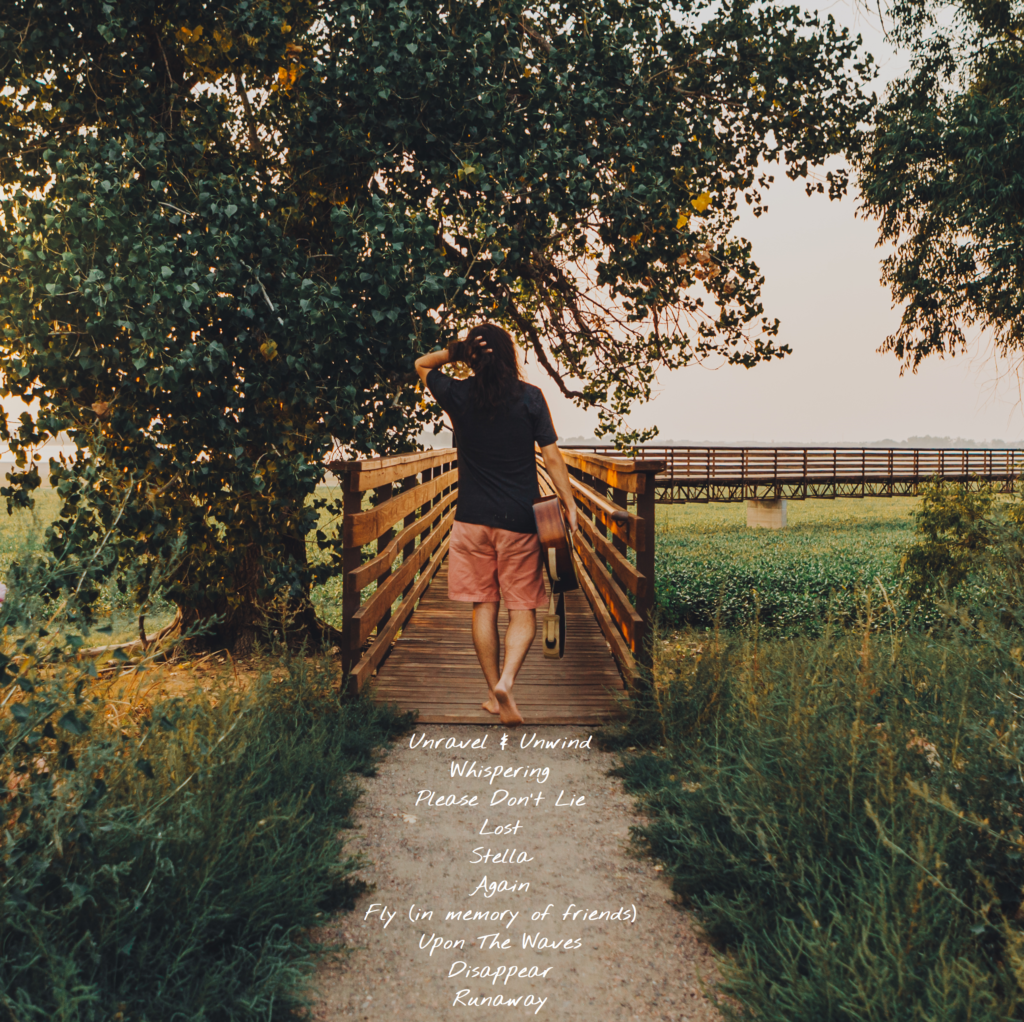
People often hear stories like mine and think “that sounds nice, I want something like that too.” It’s common, perhaps even expected, that they focus on the good parts and ignore the bad ones.
As I hope this post shows, the truth is that I wouldn’t have gotten to where I am if not for a huge amount of hard work, risk, challenge, and adaptation. I have no regrets and I would do it again in a heartbeat. You’re going to have to pay your dues and work hard if you want to accomplish anything, whether that’s in freelancing, creative fields, marketing, psychology, entrepreneurship, science, or anything else. While the details of my life have changed, today, I work harder than ever.
As Mark Manson says, it’s not about finding a job that doesn’t come with a shit sandwich. You’re going to have to struggle through challenges and work. The trick is to find the shit sandwich you don’t mind eating.
For me, I don’t mind freelancing’s shit sandwich for a couple main reasons:
- I get to do creative work all day that I genuinely enjoy.
- I am in control of my schedule, work, location, and work-life balance.
- Projects tend to have a fast turnaround, meaning I’m constantly learning new things.
- People actually read what I write and care about what I do.
- I get paid very well. (Let’s face it, that really does make a huge difference.)
If you’re interested in becoming a freelancer or freelance copywriter, I’d love to connect with you! I am more than happy to help you if you have any questions or want any further guidance. Drop me a line on the Contact page, or leave a comment below.
Wherever you are in the world, I hope you enjoy and feel fulfilled by your vocation, and that it gives you the freedoms you desire in life.
With peace & love,
Andrew
